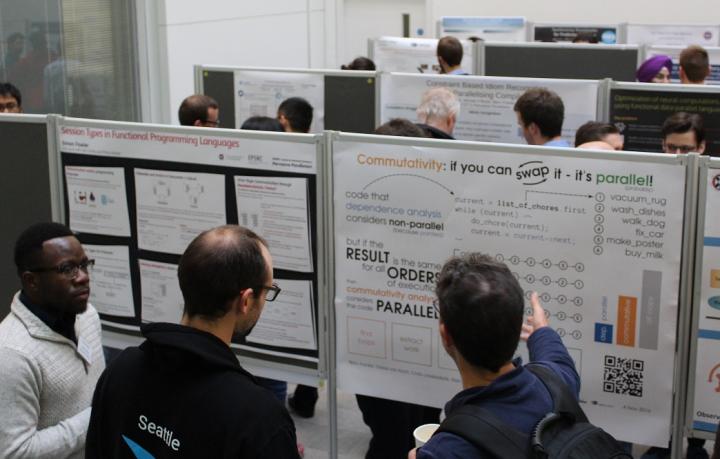Programme Structure
We offer a 4-year programme, comprising a 1-year MSc by Research stage and a 3-year PhD stage.
The programme is focused throughout on students’ development into independent researchers, under the guidance of an expert supervision team. Each of our students is assigned at least three supervisors who guide them through the MSc by Research and PhD stages:
- main supervisor allocated during the admission process,
- domain expert co-supervisor who will play a similar role to the main supervisor,
- wild card co-supervisor who is deliberately chosen to come from a different area of the Pervasive Parallelism landscape, in order to be able to ask interesting “outsider” questions, make links you may not have thought of, and generally challenge you to think beyond your immediate research area.
MSc by Research Stage

In Year 1 of the CDT PPar programme you will be registered for the MSc by Research in Pervasive Parallelism. In addition to your MSc project you will undertake a small number of academic courses together with a range of sessions on transferable research skills. Students who successfully complete the first year will be awarded the MSc by Research degree.
PhD Stage
Following the MSc by Research year, you will spend three years developing and pursuing a PhD research project, under the close supervision of your main supervisor and two co-supervisors.
In addition, you will continue to have access to all other facilities and activities associated with the CDT. You will have the opportunity to undertake internships with leading companies in your area, and will participate in our industrial engagement programme, attending events and exchanging ideas with our partner companies. Throughout your studies, you will also benefit from the CDT's bespoke programme of PPar seminars, lunches and student conferences, its pastoral mentoring scheme, travel and equipment funding, access to supercomputing facilities at the Edinburgh Parallel Computing Centre, transferable skills courses, comprehensive support services provided by the Informatics Graduate School, and the extensive range of seminars and reading groups offered by the various research institutes within the School of Informatics at the University of Edinburgh.
